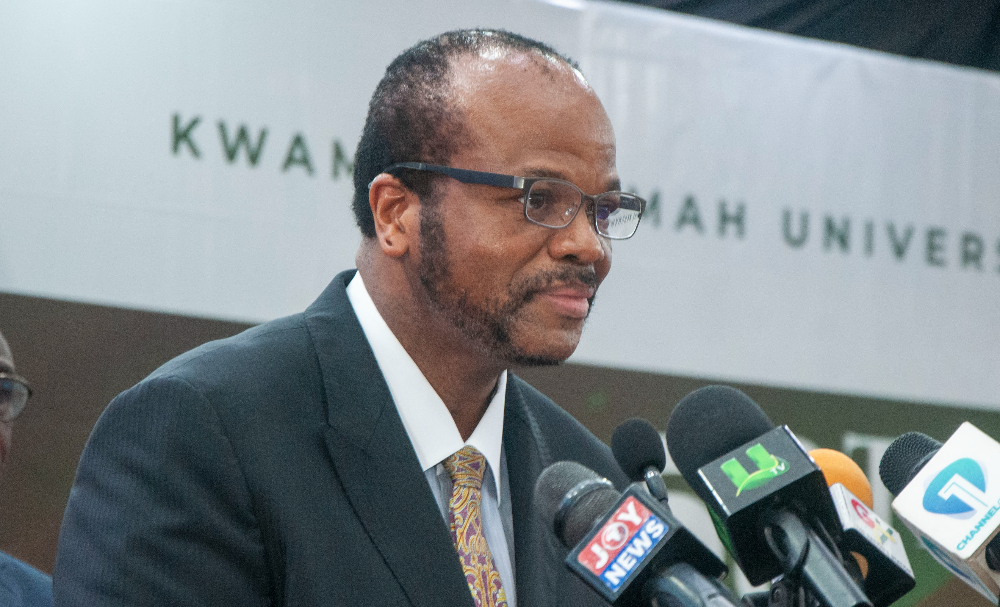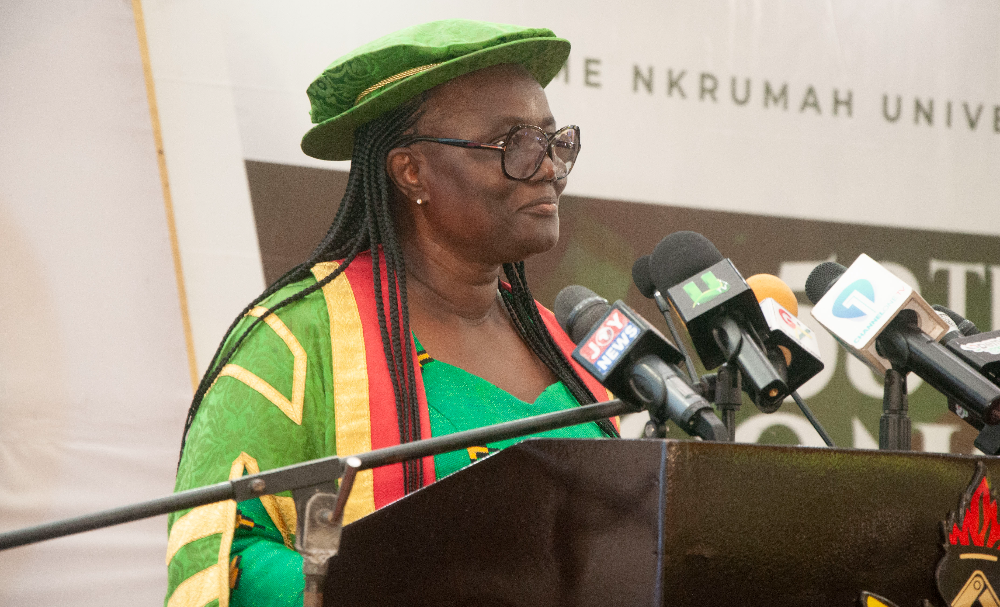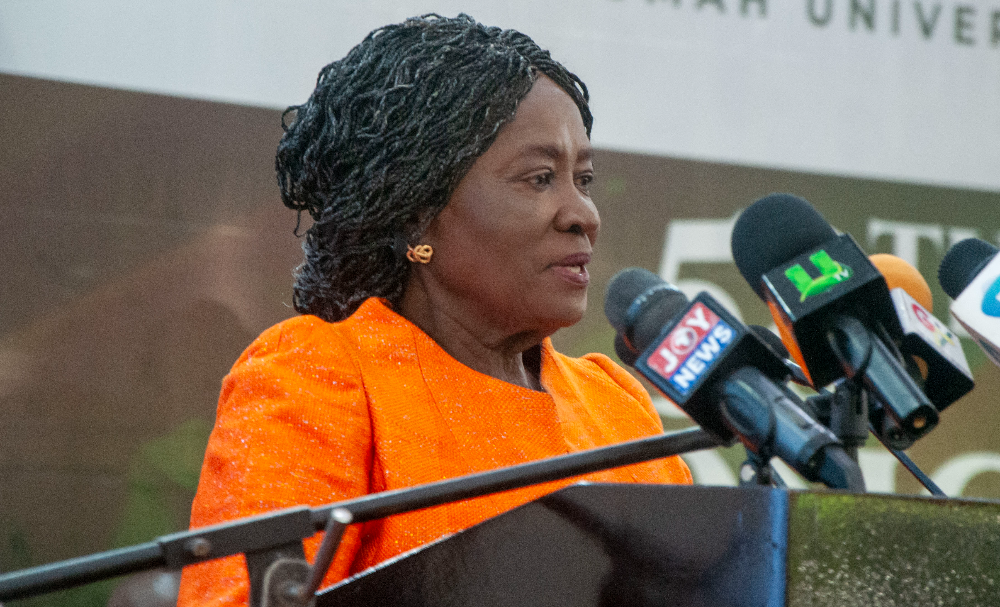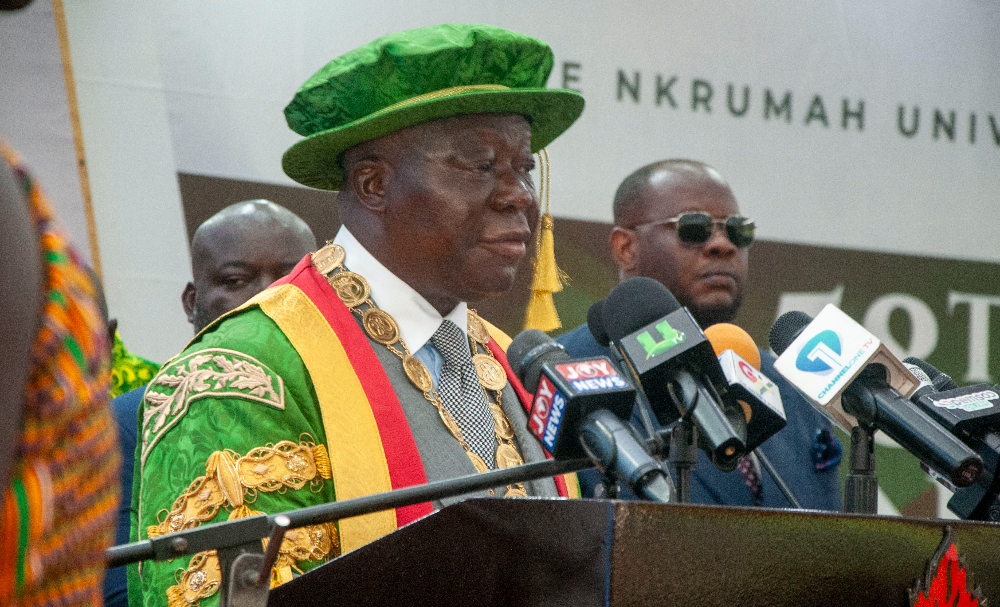Asantehene Otumfuo Osei Tutu II has called on African nations to deepen economic collaboration and prioritize intra-continental trade as a pathway to prosperity.
Speaking at the climax of the 58th Special Congregation of the Kwame Nkrumah University of Science and Technology (KNUST), Kumasi, the Chancellor of the university stressed that Africa is well-endowed with the resources needed to thrive independently.
“As African countries, we should start doing business and trading together. Our economies are in our hands,” he said. “In a world that is increasingly unpredictable, it should be Africa First, just as others prioritise themselves. We have all the resources, what more do we need to motivate us?”
Otumfuo Osei Tutu II also appealed to the government to expedite the completion of the KNUST Teaching Hospital to ease pressure on the Komfo Anokye Teaching Hospital and enhance clinical training.
He further urged the university to improve conditions of service for young faculty to retain talent and strengthen the knowledge economy.

The King of Eswatini, His Majesty Mswati III, who was present at the congregation, challenged graduates to apply emerging technologies in advancing Africa’s economic development.
“The challenges you’ll face, be it in science, technology, health, the environment, or society will be complex. But so too are the solutions you are empowered to create with the knowledge acquired here,” he said.
“Your education has prepared you not just to adapt to change but to lead it. The world today is driven by technology and artificial intelligence. We look to you to lead us in this new era.”
He reminded the graduates that success is best measured not by accolades but by the positive impact they make in their communities.

Vice-Chancellor of KNUST, Prof. (Mrs.) Rita Akosua Dickson, praised the various achievements of faculty and celebrated the promotion of Prof. Wisdom Kwadwo Mprah as West Africa’s first hearing-impaired professor, describing it as a milestone that reflects the university’s commitment to fostering an inclusive environment for differently-abled staff and students.
She also echoed the call for embracing technology and innovation.
“Do not be left behind. Remain curious and ask the relevant questions,” she said. “Do not be afraid to take the road less travelled. The greatest rewards often lie beyond your comfort zone.”

Ghana’s Vice President, Prof. Jane Naana Opoku-Agyemang, used the platform to outline two major government interventions aimed at improving access and quality in education.
She acknowledged the strain placed on families and schools by the Green-Yellow Double-Track system under the Free SHS policy and announced steps to mitigate the burden.
“To reduce overcrowding and improve teaching and learning, we are now enrolling some Free SHS graduates into accredited private senior high schools,” she said.
Prof. Opoku-Agyemang also reiterated the “No Fee Stress” initiative under the Students Loan Trust Fund, designed to eliminate upfront admission fees for university entrants.
“So far, 129,054 first-year students have accessed the portal. Of these, over 107,000 have completed applications, and validation has been finalized for more than 22,000 students across 114 institutions,” she reported.
A total of 4,965 postgraduate students were presented at the 3-day 58th Special Congregation, comprising 2,608 males (59.4%) and 1,785 females (40.6%). They included 118 PhD graduates, 433 MPhil graduates and 4,414 recipients of MSc and other equivalent degrees.
| Story: Emmanuel Kwasi Debrah (URO) | Photos: Jonathan Kwesi Gyepi-Attee | |

















